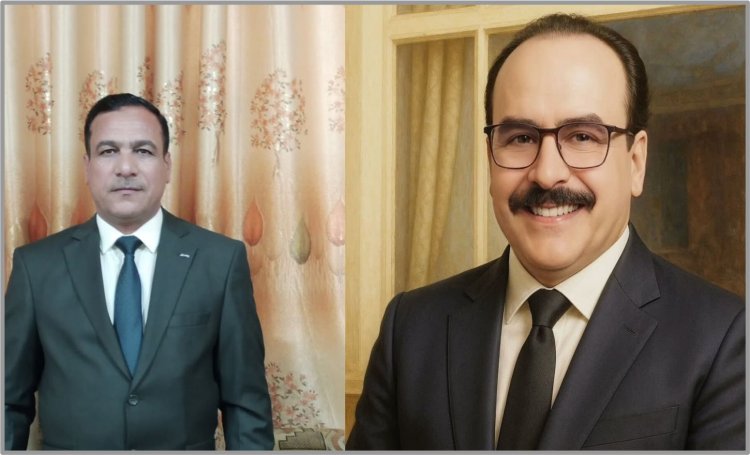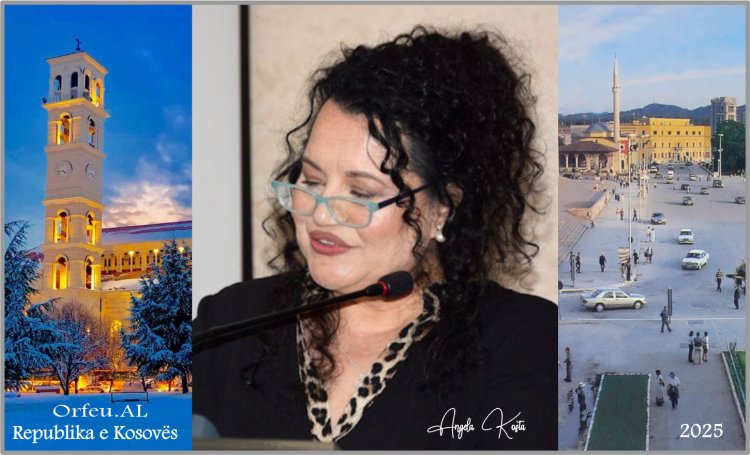HAMED AL-DUBYANI: THE EXILE THAT GAVE BIRTH TO GLORY, THE VOICE OF IRAQ MIGRATING TO THE SKIES OF THE WORLD
BY KAMEL AL-KHAYLANI
On the map of Arab creativity, a name shines not content with merely being a poet or a media figure, but transcends the ordinary to become a symbol of cultural generosity and a man of letters who carries all of Iraq on his shoulders, like a tireless travel bag, an ever-glowing torch. He is Hamed Abdul Mohammed Al-Dubyani, the unique Iraqi poet and media personality, destined to become a global star in a sky overshadowed by the clouds of his homeland, a homeland that seems to overlook him as though it never birthed him from its womb, scarred by deprivation. He stands as a towering figure in literature and a prominent name in both Arab and international media. Despite his deep roots in the rich Iraqi soil, he has remained as free as the wings of imagination—writing, establishing, and illuminating paths for others.
From Tall al-Asmar, in the village of Bzayez Khuraisan, Al-Dubyani was born in 1968 in a modest rural home, yet rich in wisdom and the legacy of stories. His grandfather's guesthouse and his grandmother's memory were his first universities and the lexicon of his imagination. There, letters began to form in his soul before ever touching paper. It was there he learned how to turn pain into poetry and deprivation into a never-ending cultural mission. Though he did not complete his technical studies and was denied opportunities befitting his ambitions, he gave his country poems and writings that continue to testify to his poetic nobility and human passion.
He first appeared on the theatrical stage, but soon realized that poetry was his broader realm and enduring fate. He joined the Association of Popular Poets in Diyala, where he found solace among greats like Saadoun Shafiq, Mahmoud Maoud Al-Ghazi, and Yassin Al-Yas. They were his mirrors and anchors, propelling him as a poet with a distinct voice, rhythm, and refined vocabulary.
Yet his journey did not stop at poetry. It expanded to encompass journalism and media. Al-Dubyani carried his Iraqi voice to every corner of the Arab and global stage, becoming President of the Arab Creators Association – Iraq Branch, Vice President of the Global Creators Organization, and a cultural ambassador in numerous forums. He founded cultural news agencies that reached far beyond Iraq, crafting a homeland from pain and a passport from words.
He wrote for Iraqi newspapers and global magazines, his platforms ranging from Al-Qadisiyyah to Al-Sabah, from Cultural Papers to Echo of Culture, not merely as an editor but as their soul and founder. His accomplishments extended beyond local borders, as continents raced to honor him: Italy, Morocco, Kosovo, Norway, Albania, Turkey, Germany—all placed his name among the unforgettable, the irreplaceable.
Al-Dubyani is not a poet who writes to pass by, but one who is written about to be preserved. Thus, he became a favorite of Arab critics from Algeria to Morocco, from Tajikistan to Europe. They analyzed his poems and made them intellectual material, while his own country turned a deaf ear to a voice that is, in essence, its own. He received titles he never sought, but they came as overdue recognition:
"Poet of Love and Peace,"
"Monk of Love,"
"Land of Love,"
"King of Media Words"…
Titles that form a statue of words and build a temple in the hearts of those who honored him.
He authored poetry collections unlike any other, including:
O Your Majesty,
A Cry of Love,
Land of Love,
Dead Love Letters,
Daughter of Al-Sayyab,
A Proud Wound.
Even when writing in the popular dialect, he does not descend to the language, but elevates it-purifying it from market vulgarity and raising it to the realm of genuine beauty.
Hamed Al-Dubyani is the exile that birthed glory, the light that knows no shadow. He holds an honorary doctorate and was listed among the top twenty international journalists. He raised Iraq’s name in prestigious forums known only to the greats, amassing accolades, medals, and awards that even ministries and institutions have not achieved. Yet he remained faithful to his first poem, his grandmother’s voice, and the mud-brick house where he learned that a person can be greater than their circumstances, more noble than their surroundings.
While some nations turn their citizens into stars, Iraq-alas-has allowed a star like Al-Dubyani to become a specter lost among forgetful institutions. Yet he remained loyal, never abandoning Iraq, but making it his project and central idea: to love a homeland even if it disowns you.
Today, he is not measured by the number of articles or poems, but by the number of hearts that carry his name with love, and the number of gatherings that awaited him to light a candle from his soul. He is not merely a biography, but an epic of creativity to be passed down to generations—a lesson in how a human becomes an immortal idea.
Translated into English By Poet and translator Lebanese-Brazilian Taghrid Bou Merhi
Prepared Angela Kosta



